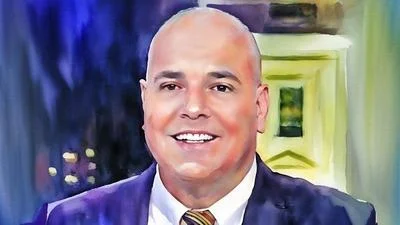Doctor Marion Mass is the co-founder of the Practicing Physicians of America. She earned an MD PhD from the Duke University School of Medicine.
This transcript has been edited for length and clarity.
Federal Newswire: What made you take the leap into policy advocacy in addition to your clinical work?
Mass: People will appreciate this, especially the moms out there. I'm almost a combination of Clouseau and Forrest Gump. I made the very conscious choice to stay home with my children and work as a hospitalist, mostly nights and weekends. I'm married to a surgeon. We balanced it. We saw each other coming and going for a while. I worked part time. When the kids were old enough that I could have done more, in terms of hours of clinical stuff, I took a look around and it's like I was Rip Van Winkle waking up.
What the heck happened to medicine? There were so many more mandates and things that we had to do, hoops that we had to jump through.
I started thinking well, maybe I could do something about this to change it. I started following the money trail and I ran right into behemoth conglomerate corporations. We have this weird medico-politico, even academic-industrial complex in healthcare. Your children and my children are going to get chewed up by this if we don't do something.
Federal Newswire: What are your thoughts on the shortage of doctors in America?
Mass: It's a mess. We have fewer physicians than we need, but what the public really has is less physicians’ time than they need. We're so busy doing all the regulatory [things]...[it’s] causing us to not spend time with our patients…
I'm married to a surgeon and none of them are going into the practice of medicine. I've had this conversation with U.S. Senator Roger Marshall, he's an obstetrician. He's become a friend because we agree on a lot of things. His wife is a nurse. They're very dedicated. They have four children. No one's going into health care at all.
Federal Newswire: Should we increase the number of medical residency programs in the U.S.?
We formed the Free 2 Care Coalition. Free to Care is 8 million citizens–70,000 of them are physicians aligned behind the ideas in our report on middlemen and transparency, and how do we get rid of the physician shortage…In addition, there was a part about the residencies, and one of the things that I think people don't realize [is] that Medicare funds the residencies. There's no transparency on where that money is going.
The average amount that Medicare pays a residency program is about $110,000. Residents are making about an average of $60,000. They have to pay their own living costs, housing costs, all the rest of that. Now, there's a little bit of money that goes towards their insurance and such.
No one pays the attending physicians to teach. Where's the rest of the money going?
Now it's not just that the hospital that's doing the residency collects that 110 per resident per year on average. [For] some of them it's much more, but they also get the bill off of that resident as they're practicing. For the hospitals, no one ever talks about how much they're billing off for the residencies. Residents themselves are starting to unionize in various parts of the country.
Nurse practitioners are entering the medical arena with much less than medical students have in terms of training, like the number of clinical hours, etc., and they're often leaving for other pastures. We were sold the bill of goods that they would help assuage the physician shortage. We shouldn't be trying to replace physicians with anything less trained than a good gold standard that does.
Federal Newswire: Where should the line be drawn regarding who can practice medicine?
Mass: I don't look upon nurse practitioners as practicing medicine. Practicing medicine is defined by our training. Our training finds medicine. If you want to come along and say you're a nurse practitioner, that's great, but, one of the problems with physician assistants and associate physicians [is the difference in training].
One of the big concerning things we've all seen in medicine is the fact that the nurse practitioner training has changed with time.
Twenty years ago, you would be maybe a nurse for 15 years, something like that, and then you would decide, okay, I'm going to go to a brick and mortar place and get a degree as a nurse practitioner, so you already had a lot of clinical experience.
Nowadays you have young people coming out of college as nurses, working part time, or maybe even full time as nurses, and then sometimes doing an online program. Those who have a doctorate as nursing practitioners are coming out, putting on a white coat, calling themselves doctor and then putting themselves out there. How does the public know that? They should. What we say is everyone should have the right to know the degree of training that the person taking care of them has had.
But instead, I think 24 states plus DC have legislated that nurse practitioners can pretty much do everything that a physician can do. I think it's only fair that the patient knows the level of training of the person caring for them.
Federal Newswire: How should we address the shortage of physicians?
Mass: Well, if we're going to dial back a physician shortage, let's cut the glut of regulations to at least free up the physician time.
Federal Newswire: How much time are doctors spending to meet government rules?
Mass: I think nationally, an average 14 hours per week per physician is spent on paperwork, not all done by the physician. Sometimes, they just have to hire big offices. Several people are just handling the office.
I went to this Wharton health care conference once. They were talking about the incentive based merit or payment system, like you get paid more if you check all the boxes or do all the things you're supposed to.
I raised my hand after the lunch lecture and I said, what I'd like to know is all you guys at CMS, how much money did it take you to plan, launch and continue to implement this program? Do you all have any proof that it's actually beneficial to anyone?
Finally, one sheepish guy [said], ‘I'm not sure how much, we're hoping in a couple of years there will be some evidence.
Federal Newswire: What role do Pharmacy Benefit Managers play–are they part of the solution or the problem?
Mass: Doctors are making 7.4 cents on the health care dollar. The pharmacy benefit managers pretty much have control over the entire outpatient prescription chain. They create the formularies. That's the list of drugs that are covered by your insurance company.
Over time, in the last several years, the pharmacy benefit managers got bought or merged with big insurance companies. So now the three big PBMs that control 80% of all pharmaceutical purchases in the United States: CVS Caremark, owned by CVS, who also owns Aetna; Optum RX, owned by United Healthcare and Express Scripts, which now calls itself Evernorth.
When Cigna purchased Express Scripts, their revenues tripled. You're an insurance company and you buy the PBM, and you triple your revenue. Everyone thinks the insurance company makes all the money. I always call these PBMs the cash cows.
If you're a big conglomerate like CVS, which owns the pharmacies themselves, and Aetna and the PBM, you're incentivized to pay more to the pharmacy that you own. In fact, the independent pharmacies have been screaming this from the rooftops. Independent pharmacies are closing. One hundred and forty pharmacies in Pennsylvania, most in rural areas, since the start of this year.









